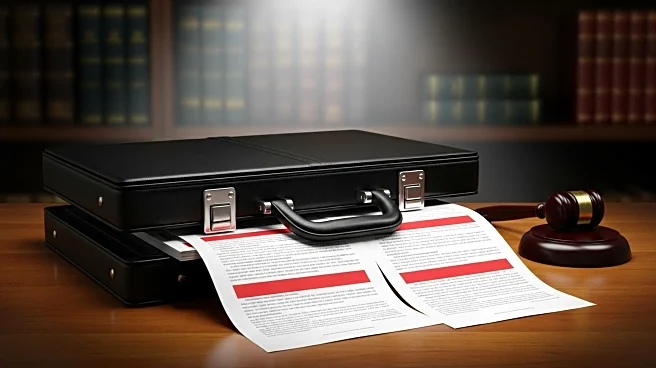What's Happening?
A judge has released a redacted document justifying the FBI's search of John Bolton's home, citing probable cause that classified information was being illegally kept there. Bolton, who served as national security adviser during President Trump's first term, has not been charged with a crime. The search, conducted on August 22, was part of an investigation involving national security and highly classified materials. The affidavit, which remains heavily redacted, indicates that the FBI seized phones, computer equipment, and documents from Bolton's Maryland home. The document also references a review of Bolton's book manuscript, which allegedly contained classified information.
Why It's Important?
The release of this document is significant as it sheds light on the ongoing investigation into the handling of classified information by former government officials. The case highlights the challenges of balancing transparency with national security concerns. It also underscores the potential legal and political ramifications for individuals who have served in high-level government positions. The situation may influence public discourse on the handling of sensitive information and the responsibilities of former officials in safeguarding national security.
What's Next?
The investigation into Bolton's handling of classified information is likely to continue, with potential legal consequences depending on the findings. The case may prompt further scrutiny of other former officials and their management of sensitive materials. Additionally, there could be calls for reforms in how classified information is handled by government officials, both during and after their tenure. The outcome of this investigation may also impact Bolton's public standing and his future involvement in political or governmental roles.









